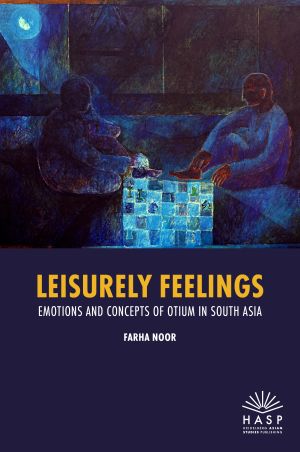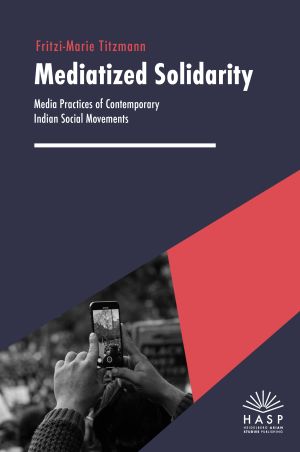##plugins.generic.hdforthcoming.forthcomingBooks##

Leisurely Feelings
This book traces a conceptual history of literature, leisure and emotions in modern South Asia. Reading colonial capitalism as entwined with the ‘myth of the lazy native’, it focuses on vernacular literary contestations. It foregrounds otium, leisure and idleness as entangled with emotions and temporalities, in expressions of the self and community. It identifies literary spheres as emotionally evolving, where discourses of leisure are played out in stylistic innovations, negotiations of colonial modernity and postcolonial uncertainties. Highlighting key expressions, discussions, and processes, it explores nostalgia, melancholy, topophilia and haunting as emotions deeply attached to South Asian literary cultures, while resonating with ideas of otium across global modernity.

Reframing Tradition
The volume presents recent scholarly research on texts and performative traditions of India in the early modern and colonial periods with a specific focus on challenges to conventional norms in literary, social, and political contexts. It gathers a selection of contributions, presented at the international webinar on “Transmission, Alteration, and Voices: Texts and
Performative Traditions in South Asia in the Early Modern and Colonial Periods”, which bring new material to approach the variety of intentions involved in transmitting and altering texts and ideas. Arranged in four parts - Adaptation and Translation, Between Performance and Script, Genres and Kingdoms, and Voices and Gender - the essays investigate altering concepts from different angles and traditions (Hindu, Muslim, Jain, Sikh). The authors shed light on exchanges pertaining to sectarian, cultural, and political issues and examine redirections by questioning channels of transmission and media used to convey transformational concepts. The topics covered include retellings in vernaculars and their adaptations to new socio-cultural contexts, transitions from oral to written traditions and contemporary performance, alterations of genres and styles in their association with courtly milieus and historical background, questions of gender and voices raised to stimulate social and political change. Strategies for creating and transforming spaces for communication of new clusters, genres, sectarian systems, and artistic representations are also discussed. The volume thus displays multiple ways of reframing tradition and diverting the course of established concepts as a common feature found across the landscapes of South Asia during these periods.

Mediatised Solidarity
In an era marked by rapid media diffusion and globalised social movements, Mediatised Solidarity delves into the evolving dimensions of solidarity within Indian social and protest movements. Focused on the period from 2014 to the present, it analyses the interplay between media practices, including social media, and solidarity expressions. Through three case studies – Shaheen Bagh, the Indian Farmers’ Protest, and contemporary youth climate activism – the book explores how media and visual art shape and are shaped by solidarity and the extent to which shared memories and cultural heritage are used to stage social cohesion







